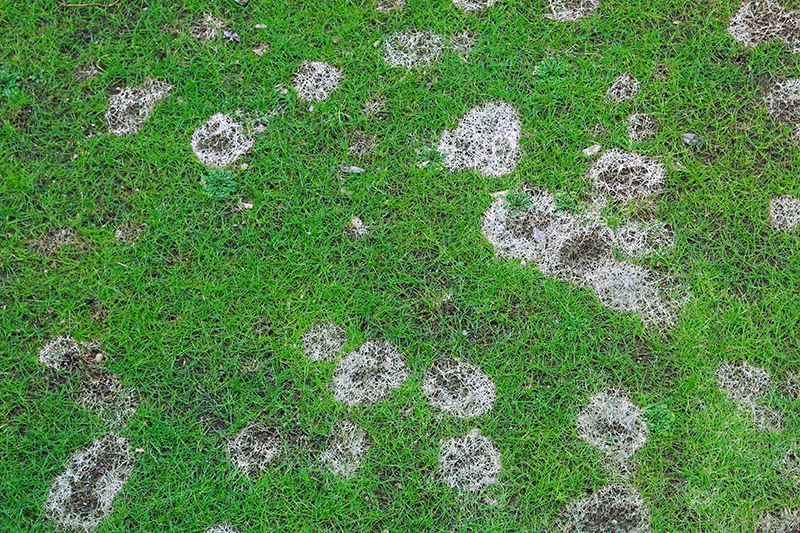Pest Control
When it comes to pest control, choose welfare over warfare — if you take care of the lawn’s needs, then the pests will not attack.
Why do pests attack my lawn?
Pests and diseases are a sign of a nutrient deficiency or weakened plants. When a pest attacks a plant, it is attracted to it because the plant is sending electric or chemical signals of weakness.
For instance, when we apply synthetic nitrogen fertilizer to lawns, the grass will store the nitrate in its tissues at toxic levels. The grass will respond by diluting the nitrate with water, leading to rapid growth of weak tissues. The tissues are now full of chemical nitrates that are attractive to pests.
Note: If a plant is the natural food source of an animal like deer, rabbits, or slugs, the animal may still eat and attack the plant in its quest for nutrient rich food.
.jpg)
Mushrooms and fungi on grass. Photo by iphotothailand1, 123RF
Managing Lawn Pests
To keep pests off your grass, promote healthy soil and grass. This includes: managing the nutrients in your soil organically, promoting healthy microbial activity, leaving lawn clippings, mowing high, aerating, only watering deeply and infrequently, and avoiding all synthetic chemicals.
Stay away from applying any sort of pesticide, as they will do nothing to address your nutrient deficiency, and only add to the time and cost of solving your problems.
Tip #1:
Application of compost tea can help control many diseases and pests — the bacteria, protozoa, and fungi in compost tea will attack and consume many pests, and reduce buildup of thatch where pests might lay their eggs or hide.
Tip #2:
For grub problems, be sure to address all nutrient needs first, but applications of beneficial nematodes can help reduce grub populations.
Tip #3:
Sharpen your lawn mower blades after every 12 hours of use - dull blades will shred grass tips, exposing the grass to water loss and disease.
 Turf disease. Photo by susazoom, 123RF
Turf disease. Photo by susazoom, 123RF